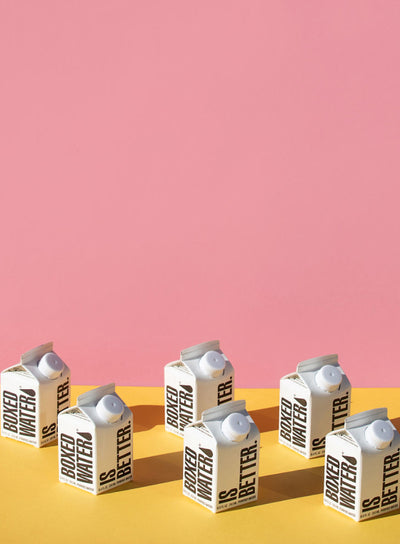Our oceans are drowning in plastic. It’s an epidemic that’s taking over the world and shows no signs of slowing unless we do something about it.
Beaches are our happy places. They’re where we vacation, where we play, where we escape to for serenity. But plagued by plastic waste, our beaches will soon be landfills if we don’t take action – and quick.
You may think that recycling is a universal practice. But it’s not. As we've mentioned before, a study published in the 2017 Science Advances found that only nine percent of plastic waste globally is recycled. And, each year an estimated eight million metric tons of plastic ends up in our oceans, and that’s expected to double by 2025.
Within the North Pacific, there is a island of plastic that’s twice the size of Texas. The trash is caught in whirlpools, created by natural ocean currents that spiral around. This “Great Pacific Garbage Patch” is just the largest of five floating trash islands.
From bags to water bottles to pop can rings, plastic is not only overtaking oceans and beaches, it’s also harming marine life. Fish, dolphins, turtles and birds accidentally consume plastic thinking it’s food – or are caught in it and physically choked to death.
For animals that consume plastic, it can have dangerous results; as the Ocean Conservancy reports, “it can cause life-threatening problems, including reducing fitness, nutrient uptake and feeding efficiency – all vital for survival.”
Think it’s not affecting humans? Think again! It’s estimated that a quarter of all fish contain plastic (from consuming tiny plastic debris floating in the seawater). And, according to a United Nations Environment Projects report, the presence of plastics in our food could pose a human health risk.
In short, the plastic crisis isn’t just negatively affecting our beaches, oceans and sea animals, it also presents a real issue for human quality of life, too.
What can we do?
One of the best ways we can keep plastic out of our oceans is to reduce our use of plastic products. And, for the plastic we do use, it’s important to recycle appropriately, rather than allowing it to flow into our waste stream.
Small actions like using reusable shopping bags or choosing Boxed Water over plastic water bottles can make a big difference.
You can also participate in local river and beach clean-ups. For example, the Ocean Blue Project has chapters across the country and will help you organize a clean-up.
Together we can help solve this global crisis – but it will take all of us, working in big and small ways to make it happen.

